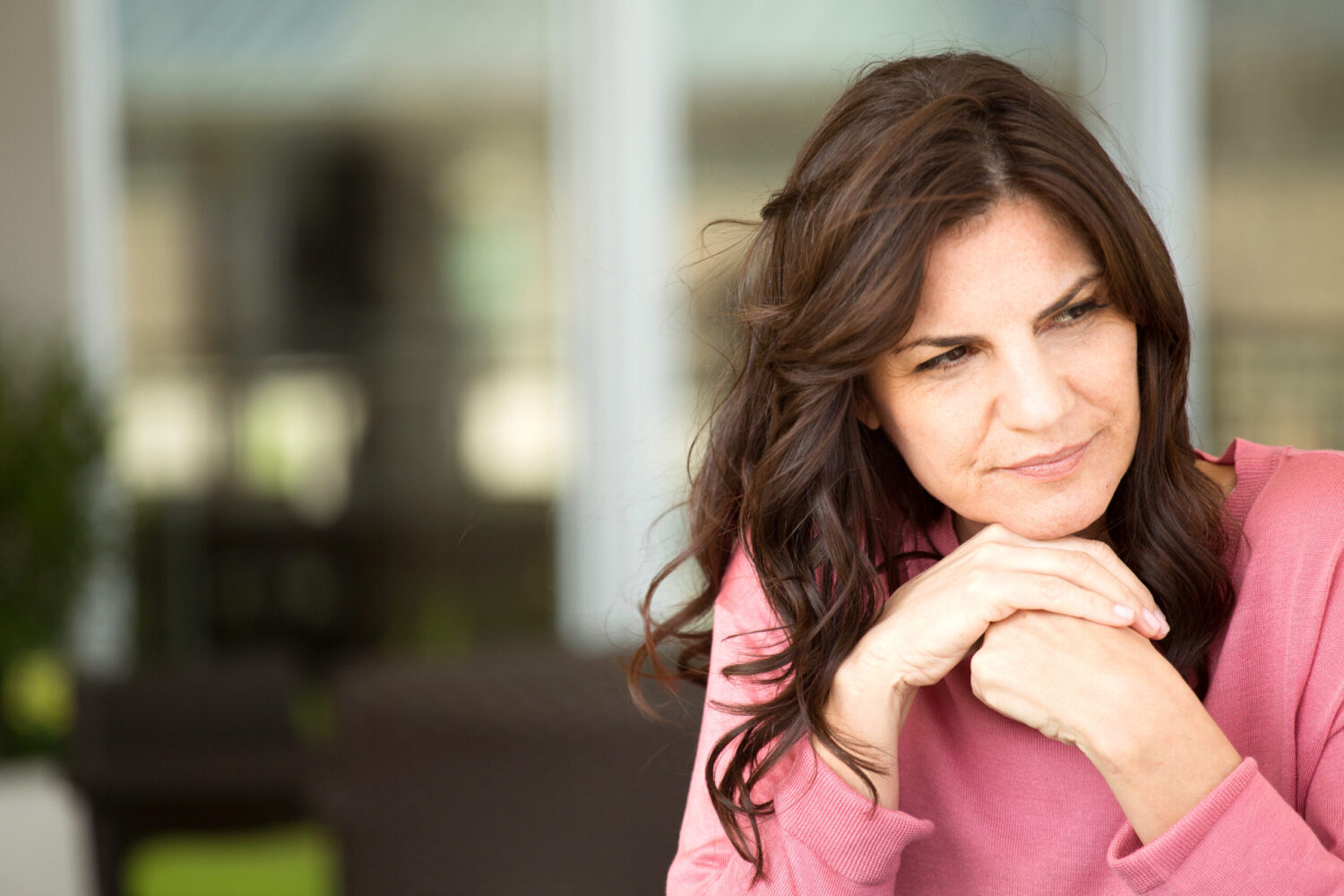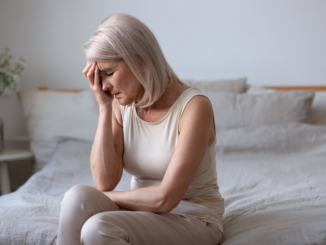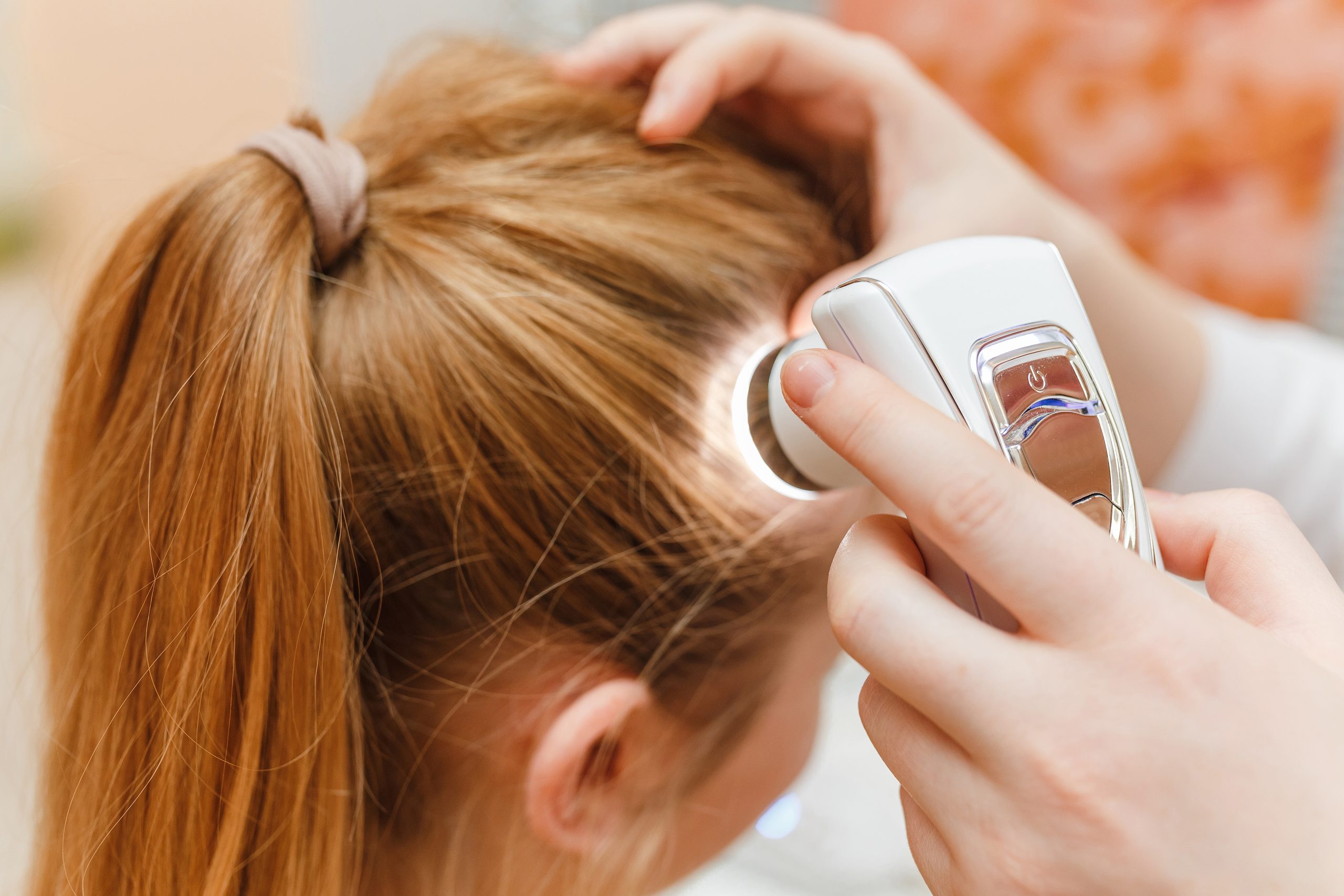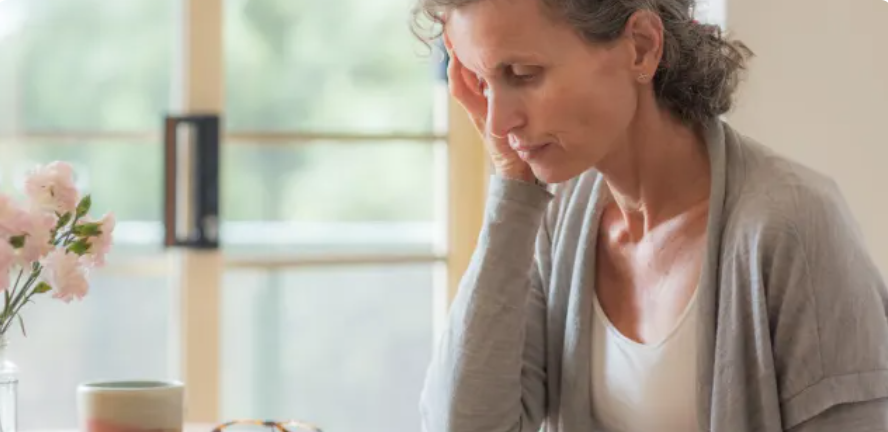
Clinical Trichologist Eva Proudman MIT IAT gives her tips and advice on coping with the impact of the Menopause on your hair, which she believes should no longer be a ‘taboo’ subject.
The first signs that the Menopause is affecting your hair
The average age for Menopause is 50, but changes to your hair can start to occur long before this in the peri-menopausal phase. This is when your body begins to change in preparation for the full onset of the Menopause.
During the perimenopause, hormone levels can begin to fluctuate causing changes to the menstrual cycle. Many women begin to experience heavier, more frequent periods which lead to a depletion in Serum Ferritin, our stored iron. We know that low ferritin levels can lead to excessive hair shedding (telogen effluvium), so it’s important to keep your ferritin levels up throughout this time in order to keep your hair glowing and healthy. Good food sources for this are: red meat, beans, nuts, brown rice and fortified breakfast cereals.
Menopause and hormones
As the Menopause commences, many women begin to notice a reduction in hair length and volume. This is because the Menopause causes the hormones oestrogen and progesterone to decrease; oestrogen in particular is beneficial for the hair – it helps to keep it in the ‘growing phase’ (the anagen) for longer.
Some women are sensitive to DHT (dihydrotestosterone), meaning that for them, hair thinning can be more pronounced. The drop in oestrogen levels causes a higher ratio of testosterone to be present in the body, allowing for a stronger negative effect on your hair follicles. If there is a history of male or female pattern hair loss in your family, you may be more sensitive to this.
Menopause and greys
Some women will find their hair greying more fervently during the Menopause. There are lifestyle changes you can adopt to help prevent this from happening – namely, no smoking and a balanced diet containing lots of iron, vitamin D and the B vitamins. Foods that have strong antioxidant properties can also be beneficial such as dark chocolate, pecan nuts, blueberries, strawberries, raspberries, kale, red cabbage, spinach and beetroot.
To keep your grey hair looking and feeling healthy, try a purple shampoo to give it a nice bright tone. Adding layers and washing your hair every other day will also help keep your hair looking bouncy and full.
If you start to notice any of these changes in your hair – don’t panic, we can help. Make an appointment to see a Trichologist to find out exactly what is causing the problem and start to manage it as soon as you can. To find details of a reputable practitioner near you, visit the Institute of Trichologists website.
Symptoms to look out for
• You notice that when you tie your long hair back it is thinner, the tie wraps around it more times.
• Your hair appears to have stopped growing
• Your centre parting is getting wider and your scalp is more visible on the top of your head
• A recession of hair around the temples and front hairline.
• A reduction in the thickness and length of each strand.
Things you can do at home for Menopausal hair problems
• Up your protein intake to encourage hair growth
• Start taking hair specific vitamin, mineral and protein supplements to help you achieve the correct balance for healthy hair growth
• Get active: activity helps us to manage stress, and stress can have a really negative effect on your hair because it raises the androgen levels in your body. Yoga is great for helping with relaxation and reducing stress. Walking, attending an exercise class, going for a bike ride, whatever your favourite activity is will have a positive effect not just on your hair but also on the other side effects that come with the Menopause such as mood swings, weight gain and insomnia. All of these are really important in maintaining a good hormonal balance which ultimately promotes healthy hair growth.
• Eating a balanced diet is your best defence against hair loss; you are what you eat couldn’t truer when it comes to your hair. Make sure your diet includes a balance of protein, whole grains, fruits and vegetables at every meal. It is important to ensure that you have some mono-unsaturated oils such as olive oil as well as essential fatty acids too.
• Use a good shampoo and conditioner to keep your hair and scalp clean, balanced and moisturised. When using heated styling tools, dial down the heat and use heat protection products to support your hair’s overall health.
Talk to Your GP
If you’re finding your Menopause really difficult to cope with, talk to your GP about hormone replacement therapy, (HRT). HRT can return oestrogen levels to an average pre-menopausal level, while also helping with hot flashes, mood swings and osteoporosis and not least your hair thinning.
There are risks involved with HRT, so talking it through with your GP really would help. If you do decide to go ahead with HRT, do tell your doctor about your hair concerns as some HRT treatments are hair-friendly whilst others are not and can exacerbate your hair thinning.
Trichologists are aware of which HRT treatments are good for the hair and together with your GP could help determine the best treatment for you.
In summary, Menopause doesn’t have to mean that you need to put up with thinning hair. There are lots of factors that you are in control of: diet, lifestyle and haircare are 3 big areas that can really influence your hair health.



